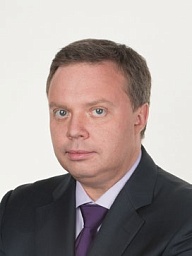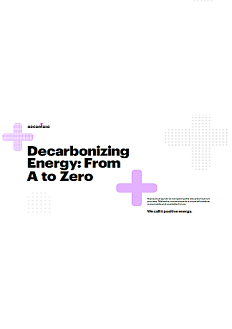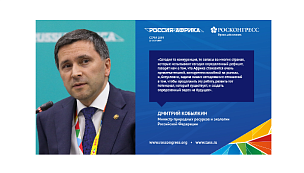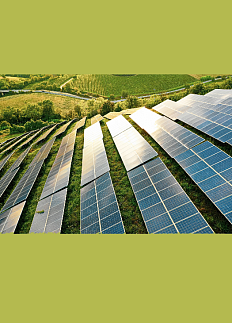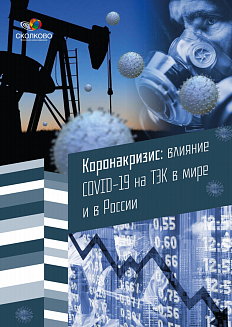Export of technology is not a precise definition; we are building partnerships for a hundred years to come. It is obvious that nuclear power projects are so large in scale that the relationship between the partners is always something more than a simple customer-supplier relationship.
Today, we are working in more than 50 countries, implementing large nuclear power plant projects (NPPs) in 12 of them. Its no coincidence that countries around the world choose Russian nuclear technologies, because we have an impeccable international reputation. Over the last 14 years, we have connected 15 power units in Russia and abroad to the grid. Next year, the Russian nuclear industry celebrates its 75th anniversary, so we are now offering our partners a unique combination of tradition and the latest technologies.
Today, the geography of nuclear energy is shifting to the Middle East, Asia and Africa. In order to ensure economic growth in the African region, an ever-increasing amount of electricity is needed. So the African continent is one of our priority regions and we see that this attitude could be called mutual. Many African countries are considering joining the nuclear club in one form or another, whether it be construction of a nuclear power plant or a Centre for Nuclear Science and Technology (CNST). Here, the states of the continent are absolutely in step with the global trend because nuclear energy today is on the rise around the world. Just keep
in mind that 2018 was the best year over the last 30 for the industry in terms of total connected capacity.
The potential of nuclear energy is huge. Certainly, it is a clean and reliable source of energy at a predictable price for decades to come. We take access to electricity for granted, yet, on the African continent, people and the economy suffer from rolling blackouts due to infrastructure problems. Yet nuclear technology is much more than just electricity. Rosatoms successful experience suggests that nuclear energy is an infrastructure driver for the national economy. We are talking about thousands of new jobs, entire new sectors of the economy, nuclear medicine, a quantum leap for agriculture, access to clean water and much more. According to our estimates, 1 US dollar invested in nuclear power plants under the Rosatom project brings in USD 1.9 to local suppliers, USD 4.3 for the countrys GDP, and USD 1.4 to the Treasury in the form of tax revenues. All these advantages of nuclear energy become a competitive advantage for any country that joins the international nuclear community.
In Africa, Rosatom already has a long list of partners. We are actively working both in sub-Saharan Africa Ghana, Zambia, Kenya, Nigeria, the Republic of Congo, Rwanda, Tanzania, Uganda and others, and in North Africa Egypt, Algeria and Sudan.
Our biggest project is being implemented here: the construction of Egypts first nuclear power plant, El Dabaa. Thanks to this plant, with a capacity of almost 5 GW, this country, and the entire Arab world, will receive the most modern and safest nuclear power plant. Egypt, like our other partners, has chosen the evolutionary reference generation 3+ reactor of the VVER-1200 project. Referentiality is one of the pillars of our business because we offer the world only those technologies that have proven themselves in Russia. Today, we have already connected to the grid three reactors of the type that we are successfully exporting.
I would like to note that, thanks to the well- established cooperation with the Egyptian leadership, the project is being implemented within the framework of previous agreements. We have already received permission for the site and our next step is to obtain a construction licence.
Our other project, in Zambia, perfectly illustrates that nuclear technology is not just electricity. This is a center for nuclear science and technology to be built near the countrys capital. It will be equipped with a research reactor, a nuclear medicine centre, as well as a multi-purpose irradiation centre, which will improve the safety of food products and create conditions for increasing agricultural exports. Often, construction of a CNST is the first step on the road to the big atomic league.
African states are well aware of all the advantages of belonging to the nuclear club, especially with Rosatom acting as conductor with its integrated offer. We are the only ones in the world who are ready to provide full support for the national nuclear energy programme of a customer country at all its stages and provide access to the full line of products and services throughout the entire life of a nuclear power plant from a single supplier.

The payback period of nuclear power plants on the African continent is a long process. What will be the reason for the return on investment?
In the case of Africa, we have to talk not about the high cost of electricity, but about its availability as such. According to a recent World Bank Report, only 43% of Africans have access to electricity, while the global average is 87%. Lack of access to electricity is only half the problem. Lets look at the cost of this electricity. According to the same World Bank report, people in dozens of African countries are forced to give away a tenth of their annual income for the luxury of using a refrigerator.
In general, I want to say that the high cost of nuclear energy is one of many myths that, unfortunately, still surround the industry. As I mentioned above, inclusion of nuclear energy in the energy mix itself provides a powerful qualitative impetus to the economy, establishment of high-tech industries and, as a result, growth of the export potential and quality of life. According to the latest report by the International Energy Agency (IEA), the construction of new NPPs is absolutely competitive compared to other green energy sources like wind and solar. It is also worth noting such an economic advantage of nuclear power as the stability and predictability of the cost of electricity.
For example, lets have a look at whats going on with oil prices. No one knows how much oil or natural gas will cost in ten years. Natural gas is about 85% of operating expenses in gas stations. It means that, if the gas price doubles, the cost of a kWh increases by at least 70%. And electricity is always needed and ideally at stable prices. In nuclear power, the raw material component of the cost price is 1015%, and the cost of generation is far less dependent on the price of uranium. Several billion invested in nuclear power plants today guarantee a cheap, environmentally friendly and stable base load for many decades.
Rosatom has a significant competitive advantage in financing nuclear power projects. We offer our partners various financial models. For example, in the case of Egypt, it is intergovernmental credit and, in Turkey, we are implementing a BOO (build ownoperate) project, as the main shareholder and investor in nuclear power plants.
All these models have their advantages but the choice of the optimal approach for a particular country is a decision for our foreign partners.
What are the prospects for using floating nuclear power plants in Africa?
Today, everyone is talking about the technology of small modular reactors (SMR), which lies at the heart of our floating nuclear power plants. According to the International Atomic Energy Agency, dozens of SMR modifications are under development. Rosatom is the only vendor in the world that has a ready-made product solution in this field.
In Africa, the demand for electricity is growing and will continue to do so. However, there are problems associated with poor development or a complete lack of the requisite infrastructure on the continent. We have created a floating nuclear power plant project taking such challenges into account.
We are very proud of the worlds first floating nuclear power unit Akademik Lomonosov. This is a perfect illustration of the reference principle I mentioned earlier. In September, Lomonosov was moored in Pevek, Russia. This is a very remote area with poor infrastructure, which, at the same time, has vast natural resources. The floating nuclear power plant is an ideal energy option for this remote region with huge industrial potential. There are many such regions on the African continent, only it is warmer there.
Recently, your subsidiary Rosatom Infrastructure Solutions presented comprehensive water supply solutions for Africa. Will you tell us about this project?
As I said, there are dozens of options for how nuclear technology can improve the quality of life and already does so. In general, if you look at the sustainable development goals formulated by the UN, there is hardly an aspect where nuclear technologies remain uninvolved.
Our comprehensive solution for improving public access to clean, potable water is a good example of how nuclear energy never comes alone. Integration of a modern desalination unit with nuclear power plants is a fairly obvious solution, allowing developing territories to be provided with electricity and clean water in the volume needed.

If the desalination complex is designed in integration with a large-capacity nuclear power plant, a hybrid system, currently considered the most energy- efficient, may be used for producing clean water.
Back in Soviet times, our universities trained specialists for African countries. Is this still the case?
A professional personnel base is the key to the success of any major infrastructure project, especially in such a high-tech industry as nuclear power. Thats why we focus on personnel training at Rosatom. We offer training for heads of public and private enterprises and representatives of national regulatory bodies responsible for developing the national nuclear programme. Moreover, we are confident that the formation of a qualified talent pool of young professionals to support the nuclear programme throughout its life cycle is no less important. For five years, there has been a programme of state scholarships for students wishing to study nuclear and engineering specialties at leading Russian universities. At the request of Rosatom, annual quotas are allocated for representatives of African countries.
Since 2010, more than 1,500 international students from 40 countries have been studying on education programmes in relevant specialisations at the universities of the Consortium of the Rosatom flagship and partner universities. Today, hundreds of students from African countries study in Russia, including from Algeria, Ghana, Egypt, Zambia, Kenya, Nigeria, Tanzania, Uganda, Ethiopia and South Africa.
How can we formulate the task of the Rosatom delegation at the Forum?
I believe that Africa is a continent with a future, given its demographic and economic potential. Rosatom, on the other hand, has everything needed for helping to make a technological and economic leap in these countries.
Africa is also the youngest continent and we, as well as all mankind, must do everything possible to make the life of the younger generation as comfortable as possible. For this purpose, Rosatom offers solutions to partner countries in the field of energy and food security, health, education and science, improving the quality and standard of living of the population.
I want to say that the countries of Africa and Rosatom are taking the first steps towards each other for the welfare of people throughout the region. Our task at the Forum is to boost this movement.


